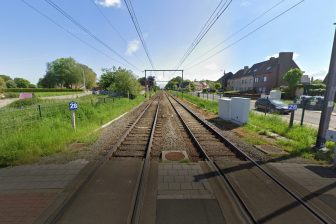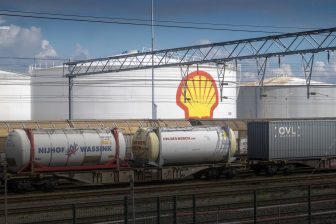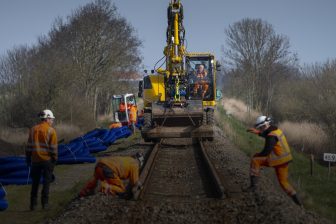FRA Rail Safety Research Projects
Washington, United States of America – University of Nebraska at Lincoln Receives FRA Grant to Study Rail Strength. Researchers at the University of Nebraska at Lincoln will use a $490,000 grant from the Federal Railroad Administration (FRA) to test track strength and rail stress from moving rail cars in order to predict areas where the track may deform or buckle from weight or temperature fluctuations. In addition, the use of wireless technology will be studied to warn locomotive engineers about potential problems with the track ahead in an effort to prevent train accidents from occurring. These research projects support the goals of FRA’s National Rail Safety Action Plan.
FRA Joins with National Research Council Canada to Study Rail Surface Issues. The Federal Railroad Administration (FRA) is providing a $282,465 grant to the National Research Council Canada for a joint study of issues impacting the surface of rails. Known as rolling contact fatigue, or the stress on the surface of the rail resulting from the interaction with the wheels of the train, it can cause rail failures and lead to derailments. The project will validate measuring devices to efficiently identify areas where rail breaks may occur and provide important information to railroads about where to direct rail maintenance efforts. This project supports the goals of FRA’s National Rail Safety Action Plan.
University of West Virginia To Continue Study of Railroad Cross Tie Durability. The University of West Virginia at Morgantown will continue ongoing research into improving the durability of railroad cross ties using a $102,332 grant from the Federal Railroad Administration (FRA). One research project uses a glass fiber reinforced polymer composite material to wrap existing cross ties or components of wooden bridges in order to provide additional strength and extend their life during repair or rehabilitation projects. Another project will test the durability and aging of cross ties originally constructed with a wooden or tire core and wrapped in a thermoplastic composite material. These projects support the goals of FRA’s National Rail Safety Action Plan.
Trackside Technology to Detect Unsafe or Defective Train Equipment Conditions. Norfolk Southern Corporation is receiving $250,000 in research funding from the Federal Railroad Administration (FRA) to further ongoing research in the development, testing and deployment of trackside technology to detect unsafe or defective train equipment conditions. Specifically, as the train rolls by, the technology will identify rail car overload and imbalance conditions and assess potentially unsafe train make-up configurations. The long-term objective is to establish a trackside inspection network to improve equipment inspection and optimize safety and maintenance practices. This project supports the goals of FRA’s National Rail Safety Action Plan.
Grant Supports Rail Safety Demonstration Projects at Marshall University. Marshall University in Huntington, WV has received grant funds totaling $992,000 to continue four rail safety research demonstration projects. The first is to develop and evaluate an automatic train location system in West Virginia that uses Internet technology, and a high-accuracy Nationwide Differential Global Positioning System (NDGPS). The second is to develop an Intelligent Grade Crossing warning system for passive crossings, also using NDGPS. The third is to design, deploy, and evaluate a self-illuminating rail car reflector using ceramic-on-steel electro luminescence technology. Finally, researchers will develop design criteria for an ergonomic locomotive operator seat. This research supports the goals of FRA’s National Rail Safety Action Plan.
U las zojuist één van de gratis premium artikelen
Onbeperkt lezen? Profiteer nu van de introductieaanbieding voor € 10,- per maand.
Bent u al abonnee?



